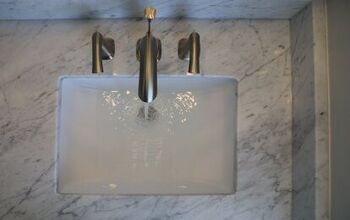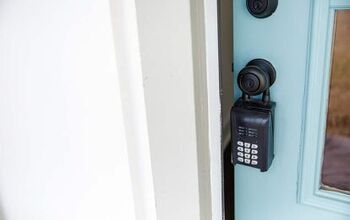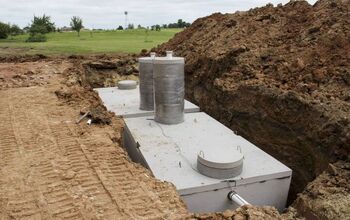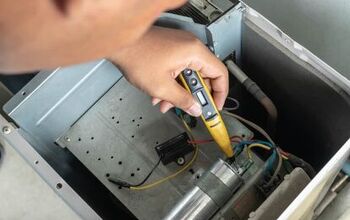What to Do If Your Landlord Won't Fix a Leaking Roof

We have all heard about them. A few of us have experienced them. I am talking about bad landlords. The ones who won’t fix a leaky roof, repair the plumbing, or keep the HVAC system running. Fortunately, tenants have rights under the law. There are ways to protect yourself in almost all United States if your landlord doesn’t keep your home or apartment habitable.
Habitability laws vary from state to state. A common part of these laws in almost every state is the concept that a landlord shall maintain the property in a liveable condition. In most states, tenant remedies may include the right to end the lease without penalty, repair the problem and deduct the cost from the rent, or file a suit against the landlord.
It is important that you understand your rights as a tenant under the laws in your state. You should also know where you can find help to resolve a complaint against your landlord. Working within the legal system is key to mitigating a problem correctly. You do have rights and there are ways to approach a landlord problem to ensure a suitable outcome.
Be Methodical and Professional
Whatever you do, keep the whole situation businesslike and professional. You won’t gain anything by being confrontational or aggressive. Attorneys and professional negotiators are adamant that threats rarely work. Trying to find common ground and offering solutions is the best option when trying to negotiate.
On the other hand, your landlord may simply refuse to discuss or address the issue with your apartment or rental home. The landlord may become aggressive or even abusive. If this occurs, the recommendation is to back away and not raise the level of behaviors but address the issue through other channels.
Document, Document, Document
If your situation eventually comes down to a court hearing or other type of adjudication, the strength of your case may depend on how well you document your efforts to work with the landlord to find a suitable solution. There are several important things you should do while you are trying to reach a solution with your landlord.
Keep a Journal
From the outset, keep a chronological journal or diary of the events leading up to the problem and every contact, request, and change in the situation from day-to-day. You may not start the journal until after the incident occurs and the problem begins with your landlord. As soon as you can, jot down all the relevant facts you can remember including dates and times. Then, keep an accurate day-by-day account of every phone call, contact, or change in the status of the situation.
These kinds of facts can become important if you eventually file a lawsuit or go to arbitration over your lease. Having a detailed account of the incident can figure greatly into the success of your case.
Get Everything in Writing
Start a file for the documentation of your attempt to get your landlord to uphold the lease and fix your apartment or rental home. Start with your lease. The lease you signed with your landlord is the foundation of your case. The lease should contain details about who is responsible for repairs, any timelines that are set, and the specifics of how notifications to the landlord about problems are made.
We suggest that you communicate with your landlord over major problems in writing. You may accompany these written communications with a phone call or email. In some cases, you should send the letter with a signature confirmation return from the post office. This will be your proof that the letter was delivered to the landlord or his representative.
Don’t depend on emails. Some courts and arbitrations may not accept an email record as evidence of communication. Even less reliable are text messages. Keep a copy of any mail you send in your file with the return delivery receipt.
Take Photos
Taking photos of the damage is extremely important. You may need to begin the cleanup to continue living in your apartment or rental home. Before you clean or repair anything, take extensive photos of the whole problem from a variety of angles. A landlord may dispute the severity or size of the damage especially if you have cleaned up the mess and made repairs.
Digital photos are usually fine. We also suggest that you print out these photos and put them in your file. At the very least, download the photos from your phone or digital camera to a safe and secure storage backup system. Always keep multiple copies in different places of any digital files that you may need later.
Follow the Requirements of Your Lease
If you expect your landlord to play by the rules you must also play by the rules. Your lease agreement is part of the official rules. Many times your rental agreement will stipulate how and where you must make a notification to your landlord about problems. The lease may also contain time frames and limits that must be followed.
Be scrupulous about meeting these required deadlines and using the methods set forth in the lease. The lease may also contain stipulations that the landlord must follow. Keep detailed notes about dates that you make notifications and any timelines or methods that the landlord fails to meet or follow.
If You Still Can’t Get a Resolution
State laws generally govern your options if negotiations with your landlord fail to resolve the problem. At this point, you may need to consult an attorney in your state that is familiar with habitability laws. This can be expensive and time-consuming. However, there are other ways to approach the problem at this point. There are other remedies that provide an alternative to filing a lawsuit. You should explore all of these opportunities before taking that last final step into the legal system.
Get Your Local Building or Health Department Involved
If the damage to your apartment or rental home is severe enough, an inspection by the local building department or your local health department may be all it takes to get your landlord on board with the repairs.
Every building in most cities must have a certificate of occupancy. If the building is out of compliance with building or health codes, a do not occupy notice may be posted. You will be required to move out until the repairs or made and so will any other tenants in the building. Most state laws allow you to stop paying tent if a do not occupy notice is posted. A sudden loss of rental income may bring your landlord around.
Withhold the Rent
Some state laws allow a tenant to withhold rent if a landlord fails to meet the responsibility of keeping the rental property habitable. We suggest you check with an attorney or other legal advisor before starting this self-help procedure to make sure it is legal in your state.
Most states allow rent withholding within certain guidelines. In some cases, you must give the landlord time to make the repairs. A few states require that you continue to pay rent into an escrow account. Make sure that you fully understand the requirements of your state and local laws before you begin this procedure.
Make the Repair and Deduct the Cost from Your Rent
Many states allow tenants to make necessary repairs and deduct the expenses from their rental payments. Most of these laws have requirements for notification and other methods before you can perform a repair and deduct scenario. You must be very careful if you employ this tactic as it can backfire if your case ends up in court. Some jurisdictions limit the amount you may deduct from the rent or the total amount you can spend on the repair.
Break Your Lease
We never suggest anyone break their lease. This is an option that should be considered a last resort. A lease is a legal contract and the ramifications for you and your financial status can be grave. Most states have laws that govern how and when a tenant can break a lease without fear of reprisal. You should take this step only after you consult with an attorney knowledgeable in lease law in your state.
Most states set forth a very precise set of conditions that must be met and steps you must take before you can abandon a lease without penalty. In general, these requirements may include:
- Calling local building and health inspectors
- The time frames allowed for the landlord to answer your complaints and repair the problem
- The types of notice you must give the landlord and the time frames involved for the notices.
Rather than abandoning the lease, if the situation warrants, you may want to consider a temporary move. Most states have provisions for recovering the cost of the temporary move from the landlord after the problem is resolved.
The Final Option – Go to Court
Two options may present themselves depending on where you live and the extent of your claim. You should explore both options before you make a decision about suing your landlord over a repair problem.
Small Claims Court
Most states and local jurisdictions have some form of small claims court. These are legal venues with some limitations. Typically, the amount of the claim you can bring against your landlord is limited to a couple of thousand dollars. In most small claims courts, you represent yourself.
Small claims court can be faster and less expane other types of courts. You don’t have to employ an attorney and the paperwork is typically less. In most cases, there is not a jury. The judge will hear your case and make a decision. The findings of small claims courts hold all the authority of any court at law.
Hire An AttorneyIf the size of your claim warrants or if state law requires it, your only other option is to hire an attorney and head to court. Be prepared for a time-consuming and expensive process. In many instances, the cost of conducting your case will exceed the actual damages you may receive. In all instances, we think that this should be a last resort option.
However, if you do prevail in your case, you should gain some protections against retaliation or reprisal from the landlord such as:
- Excessive rent increases
- Protection from eviction
- Renewal protection
If you lose, you generally get some of these protections, but you may also have to pay the full court costs of filing the lawsuit on top of not getting your claim.
Dealing with a Landlord Who Won’t Fix a Leak
How you approach dealing with a landlord who won’t fix a leak, in many ways, depends on the severity of the leak and the damages you have suffered. If the leak is small and doesn’t cause damage to your property, your actions should probably mirror the severity of the situation.
On the other hand, if the ceiling has fallen in on your kitchen and water is continually flowing, more drastic and immediate actions are necessary. Your response should be tempered with the size of the problem.

Dennis is a retired firefighter with an extensive background in construction, home improvement, and remodeling. He worked in the trades part-time while serving as an active firefighter. On his retirement, he started a remodeling and home repair business, which he ran for several years.
More by Dennis Howard










![What to Do When Your Kwikset Door Latch Won't Retract [Quick Fix]](https://cdn-fastly.upgradedhome.com/media/2023/07/31/9071056/what-to-do-when-your-kwikset-door-latch-won-t-retract-quick-fix.jpg?size=350x220)
![The 10 Best Table Saws - [2022 Reviews & Buyer's Guide]](https://cdn-fastly.upgradedhome.com/media/2023/07/31/9070645/the-10-best-table-saws-2022-reviews-buyer-s-guide.jpg?size=350x220)















